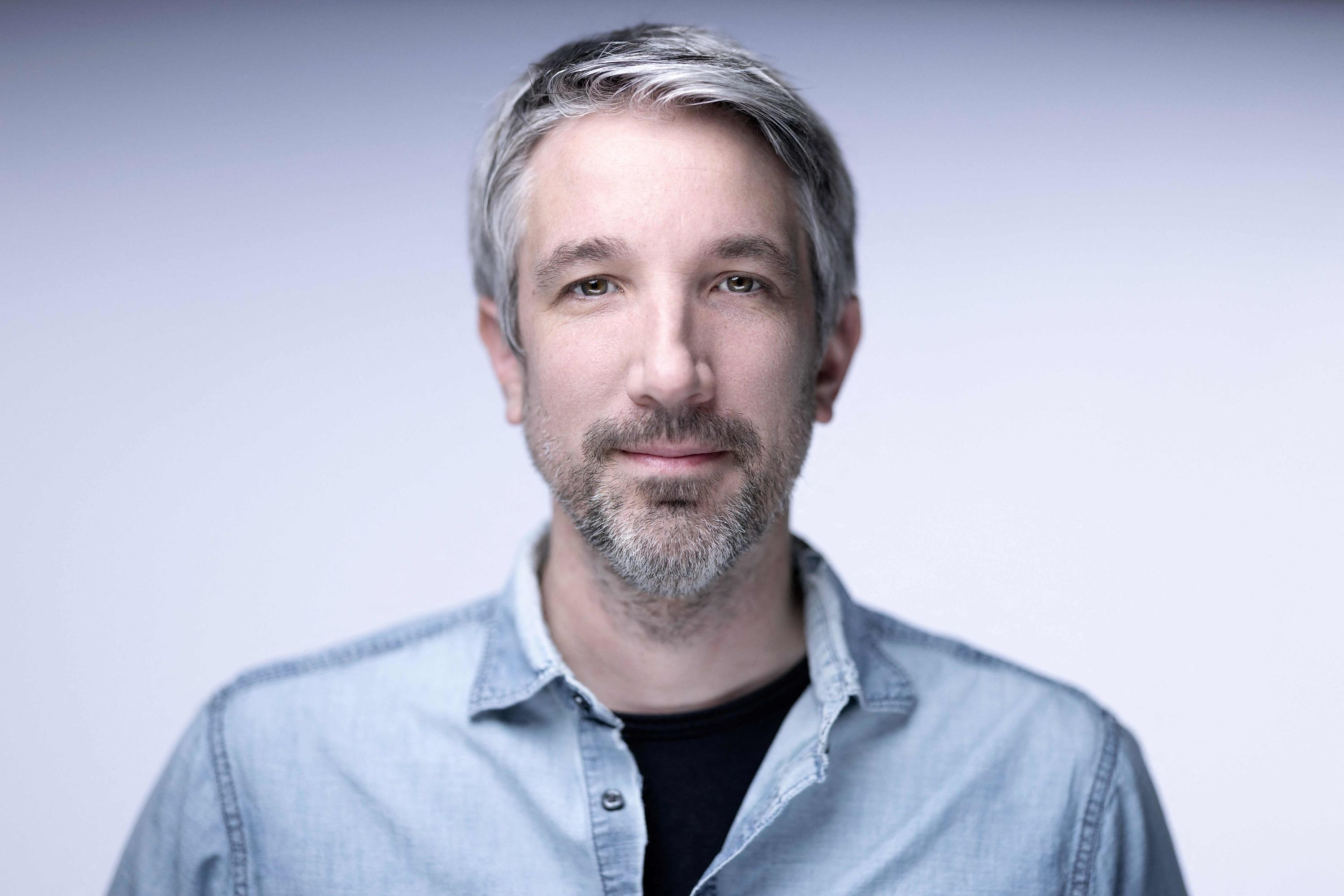“The right person at the right time” (Dogru zaman, dogru adam). From posters to brochures, the flagship slogan of Recep Tayyip Erdogan's campaign seems to escape any form of temporality. As if the Turkish president, almost certain winner of the second round of this Sunday, May 28, had prepared in advance the story of his stay in power. To the point of anticipating the festivities.
Monday, May 29, while the official results will parade on the banners of all televisions, it is in Sainte-Sophie, recently converted into a mosque, that the strong man of the country, at the helm for twenty years, has already planned to go pray. Double symbol in its calendar, the date coinciding with the anniversary of the conquest of Constantinople (a certain May 29, 1453) by Mehmet II, followed, at the time, by the transformation of the Byzantine basilica into a mosque, before Atatürk turned it into a museum in 1934. It will be an opportunity to celebrate "his" revenge and especially that of the Turks of his pedigree, new city dwellers from modest and traditional rural backgrounds, to whom he believes he has restored "pride" and "visibility “, on the urban elites heirs of the secular Republic of 1923. “Atatürk wanted to erase us. Erdogan gave us visibility,” says Mahmut Nedim, entrepreneur from the conservative Fatih district and loyal voter of the AKP, Erdogan’s party.
Yet sensitive to the economic crisis as well as to the mess in the management of the earthquake of February 6, he remains a "faithful servant" of the reis. "Opposite, the opposition has nothing to offer us, apart from the risk of plunging back into the same instability and insecurity of the 1990s", he justifies himself, assuming without blushing the choice of "order against the “chaos” evoked on television channels.
In a country where 90% of the media are in tune with power, Erdogan's narrative has for many turned into a success story, where nationalist and religious fibers continue to be tickled. "Erdogan's whole story is based on the idea that the state is going to be refounded, but this time as a state that reclaims the values of the Ottoman Empire while reconciling them with the values of the modernity and technology,” observes political scientist Zeynep Gambetti, citing the major infrastructure and military development projects of recent years.
But in Erdogan's Turkey, neo-Ottomanism, like politics, is an exercise in variable geometry. Depending on the circumstances, his lengthy speeches are a clever mix of poetic quotations, verbal attacks against his rivals and references to the various sultans of yesteryear: Mehmet the Conqueror, Suleiman the Magnificent for the grandeur of his construction sites, or even Abdülhamid II for his pan-Muslim and Arab policy. "If Erdogan were to write a book, he could call it 'History of a Rejected Nation, History of a Revived Nation'," notes American historian and Turkey scholar Howard Eissenstat. Able to perfectly endorse his victim fabric, Erdogan "knows perfectly, he says, play on the strings of an emotional harp like any good populist".
At the risk of usurping the past. In a video, available on YouTube and dating back several years, the Turkish president evokes, during a meeting, the "sadness" of the assassination of Abdülhamid II, when the sultan was simply dethroned: a slip revealing a obsession with death, and revenge, as he was able to experience it during and after the failed coup of 2016, the starting point for an acceleration of his authoritarian drift.
In summary of his referential eclecticism, a 20th century "martyr" is regularly mentioned: Prime Minister Adnan Menderes, overthrown by the military in 1960, then executed. The politician, known for his liberal positions towards Islam, had come to power on… May 14, 1950: a special day in Erdogan's symbolic calendar and which he chose, not without calculation, as the date for the first round of the 2023 presidential election.
A follower of the past, Recep Tayyip Erdogan also wants to be the proud guarantor of continuity: promises of social aid, future constructions, new hospitals, like that of Defne, in the south-east of the country, freshly built in the middle of the earthquake ruins. “We continue”, announces a billboard that scrolls through Taksim, projecting its voters into the “new century” to come – an allusion to the centenary of the Republic. In a Turkey that is more polarized than ever, where uncertainty about the future predisposes it to easily give in to the reassuring sirens of propaganda, the slogan speaks to its base as well as to its far-right allies.
It is on this central square of Istanbul, adjoining Gezi Park, the scene just ten years ago of the repression of major demonstrations of the same name, that the reis recently erected an enormous mosque... just in front of a a very Kemalist symbol, the Monument to the Republic. The message, highly symbolic, consists not in erasing the "unique man" (tek adam), as Atatürk sometimes called himself, but in going beyond him: a perfectly metaphorical synthesis of Islamo-nationalism marching on the buds of an unfinished spring.

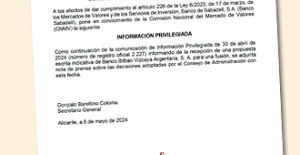 Sabadell rejects the merger with BBVA and will fight to remain alone
Sabadell rejects the merger with BBVA and will fight to remain alone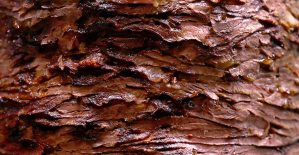 In Germany, the far left wants to cap the price of “doner kebabs”
In Germany, the far left wants to cap the price of “doner kebabs” Israel-Hamas war: Gaza between hope of truce and fear of Israeli offensive in the South
Israel-Hamas war: Gaza between hope of truce and fear of Israeli offensive in the South “Mom, Dad, please don’t die”: in the United States, a nine-year-old child saves the lives of his parents injured in a tornado
“Mom, Dad, please don’t die”: in the United States, a nine-year-old child saves the lives of his parents injured in a tornado The presence of blood in the urine, a warning sign of bladder cancer
The presence of blood in the urine, a warning sign of bladder cancer A baby whose mother smoked during pregnancy will age more quickly
A baby whose mother smoked during pregnancy will age more quickly The euro zone economy grows in April at its best pace in almost a year but inflationary pressure increases
The euro zone economy grows in April at its best pace in almost a year but inflationary pressure increases Children born thanks to PMA do not have more cancers than others
Children born thanks to PMA do not have more cancers than others “House of the Dragon”, “Succession”… Max, the new streaming platform from HBO and Discovery, launched in France on June 11
“House of the Dragon”, “Succession”… Max, the new streaming platform from HBO and Discovery, launched in France on June 11 The A13 motorway will finally reopen this Friday, in one direction only
The A13 motorway will finally reopen this Friday, in one direction only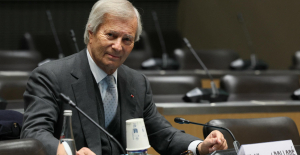 TNT commission of inquiry: tensions between LFI deputies and Macronists before the vote on the report
TNT commission of inquiry: tensions between LFI deputies and Macronists before the vote on the report Apple unveils a new, more efficient iPad range
Apple unveils a new, more efficient iPad range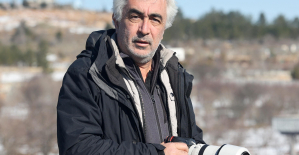 The Gaza War invites itself to the 2024 Pulitzer Prizes
The Gaza War invites itself to the 2024 Pulitzer Prizes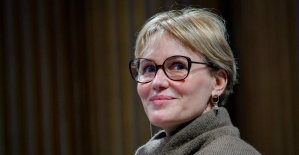 Judith Godrèche presents a short film on sexual violence in Cannes
Judith Godrèche presents a short film on sexual violence in Cannes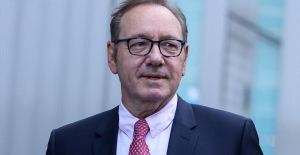 Kevin Spacey: new trial in sight in London for the American actor, for sexual assault
Kevin Spacey: new trial in sight in London for the American actor, for sexual assault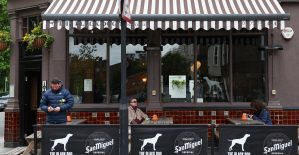 Taylor Swift fans make London pub Black Dog their new place of pilgrimage
Taylor Swift fans make London pub Black Dog their new place of pilgrimage Omoda 7, another Chinese car that could be manufactured in Spain
Omoda 7, another Chinese car that could be manufactured in Spain BYD chooses CA Auto Bank as financial partner in Spain
BYD chooses CA Auto Bank as financial partner in Spain Tesla and Baidu sign key agreement to boost development of autonomous driving
Tesla and Baidu sign key agreement to boost development of autonomous driving Skoda Kodiaq 2024: a 'beast' plug-in hybrid SUV
Skoda Kodiaq 2024: a 'beast' plug-in hybrid SUV The home mortgage firm rises 3.8% in February and the average interest moderates to 3.33%
The home mortgage firm rises 3.8% in February and the average interest moderates to 3.33% This is how housing prices have changed in Spain in the last decade
This is how housing prices have changed in Spain in the last decade The home mortgage firm drops 10% in January and interest soars to 3.46%
The home mortgage firm drops 10% in January and interest soars to 3.46% The jewel of the Rocío de Nagüeles urbanization: a dream villa in Marbella
The jewel of the Rocío de Nagüeles urbanization: a dream villa in Marbella Institutions: senators want to restore the accumulation of mandates and put an end to the automatic presence of ex-presidents on the Constitutional Council
Institutions: senators want to restore the accumulation of mandates and put an end to the automatic presence of ex-presidents on the Constitutional Council Europeans: David Lisnard expresses his “essential and vital” support for François-Xavier Bellamy
Europeans: David Lisnard expresses his “essential and vital” support for François-Xavier Bellamy Facing Jordan Bardella, the popularity match turns to Gabriel Attal’s advantage
Facing Jordan Bardella, the popularity match turns to Gabriel Attal’s advantage Europeans: a senior official on the National Rally list
Europeans: a senior official on the National Rally list These French cities that will boycott the World Cup in Qatar
These French cities that will boycott the World Cup in Qatar “The future is for us”: “disappointed” and “proud” at the same time, Al-Khelaïfi sees the glass half full after the elimination of PSG
“The future is for us”: “disappointed” and “proud” at the same time, Al-Khelaïfi sees the glass half full after the elimination of PSG PSG: “Since January, these have not been my best matches,” agrees Zaire-Emery, who promises to “come back stronger”
PSG: “Since January, these have not been my best matches,” agrees Zaire-Emery, who promises to “come back stronger”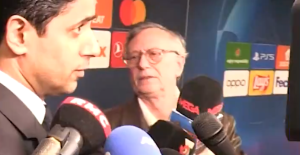 “What is this question, honestly?” : Nasser Al-Khelaïfi (very) annoyed after PSG-Dortmund
“What is this question, honestly?” : Nasser Al-Khelaïfi (very) annoyed after PSG-Dortmund “I am the guy who has to score the goals”: Mbappé does not hide and assumes responsibility after PSG’s exit
“I am the guy who has to score the goals”: Mbappé does not hide and assumes responsibility after PSG’s exit






